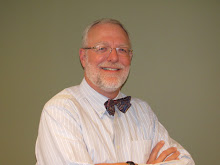Awhile ago I wrote a post entitled From Passion to Purpose? where in lamenting the permanent loss of jobs during this Great Recession, I discussed Geoff Bellman’s book Your Signature Path: Gaining New Perspectives on Life and Work, where he noted that “We don’t always need new skills to be successful; we often just need a new perspective.” I also referred to Simon Sinek’s admonition to “start with why,” to begin with your motivation and purpose as the basis for what you do and how you do it; which drive us toward discovering our passion.
Shortly after the publication of that post, I had a call from Doug, who wanted to share his story. Last year, Doug found himself unexpectedly laid off from his job as Director of Quality Assurance for a New England manufacturing company. At 57, he found himself out of a job for the first time in 26 years (full disclosure: Doug is my cousin). While Doug knew his manufacturing company was in trouble, he expected that he would be the one, in his words, “to lock the door, turn out the lights.” He saw himself as a key contributor to the company’s on-going operations. As Director of QA, he had been instrumental in establishing operations at their Mexico plant. It came as a complete surprise when he was informed that his position was no longer required. However, as he mentioned in our conversation, “it took me about ten minutes to get over it.” On the way to his car, with his personal effects, he began taking stock of his situation.
For some time, Doug had been a fixture on the local music scene, playing in a bluegrass band at venues in his community. He had an extensive network of local musicians in the region, from Connecticut, Rhode Island and Massachusetts. He loved playing with the band and jamming with others.
Doug and his wife, Melanie, were empty nesters – their kids “were off the books;” their house was paid for and they had health benefits through Melanie’s job. He figured he needed to bring in $2,000 a month to make ends meet. His six month severance package from his company would give them a cushion for awhile.
Doug started a business that incorporated his passion for music – as well as playing with his band, he books and advertises his friends and others in venues in the three state region. He also appears on a radio program that showcases the regional music scene. When he’s not playing with his band, he’s checking out other musicians’ at their gigs.
Doug realized he couldn’t make a living on his music alone, nor could he rely on just one source of income. He’s expanded his business to include event planning, providing all the needs of customers for their special events. Moreover, Doug didn’t burn any bridges with his old company. He does some consulting for them as well as for a handful of other clients. The retainer from one of his clients provides him more of a cushion for his needs.
Being laid off has enabled Doug to realize his inner entrepreneur. He’s a self described “semi-schemer,” networking all the time and thinking of new projects to take on.


